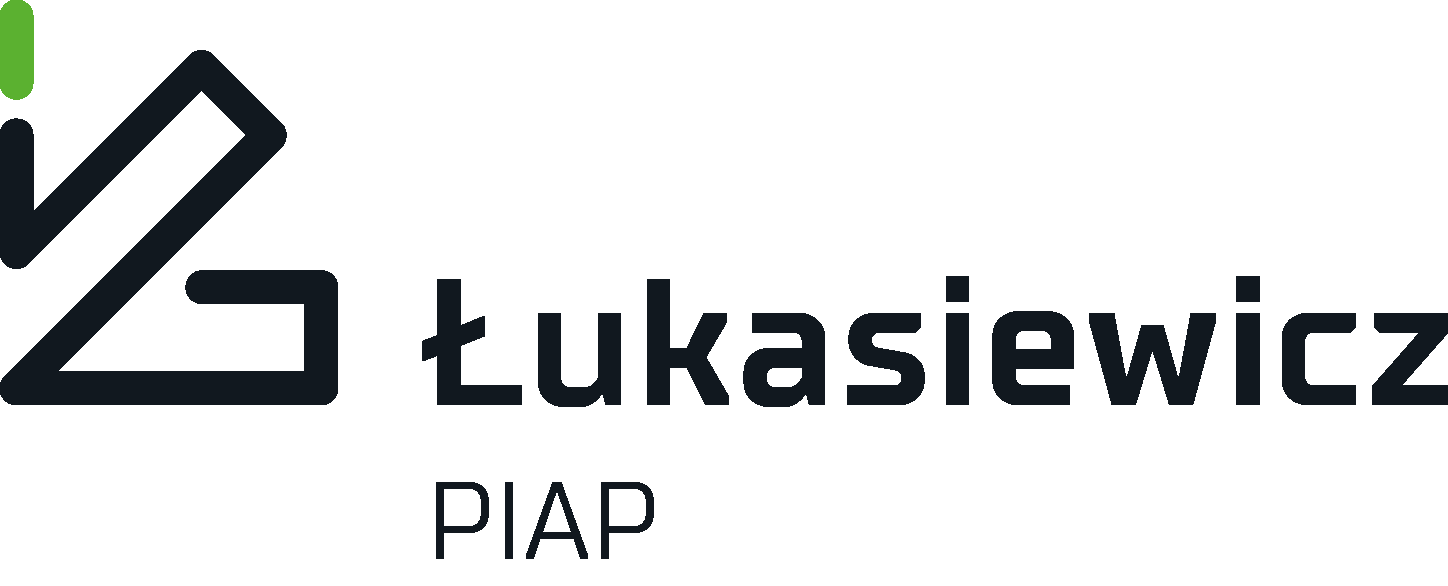Ethical guidelines for publication

The Journal of Automation, Mobile Robotics, and Intelligent Systems is committed to upholding the highest ethical standards in academic publishing.
The journal follows the Committee on Publication Ethics (COPE guidelines) to ensure transparency, integrity, and fairness in all stages of the publication process.
These principles guide the conduct of authors, reviewers, editors, and publishers, ensuring that the publication process remains credible, ethical, and aligned with international best practices. Failure to adhere to these guidelines may result in rejection of the manuscript, suspension of publication privileges, or other disciplinary actions.
The established guidelines are as follows:
1. Authorship and Contribution
• Criteria for Authorship: Authors should only be those who have made substantial contributions to the conception, design, execution, or interpretation of the research. All individuals listed as authors must meet these criteria. Those who have contributed to the project in a minor capacity (such as providing technical assistance, resources, or funding) should be acknowledged in the acknowledgements section of the manuscript rather than as authors.
• Changes in Authorship: All authors must agree upon any addition or removal of authors, including those being added or removed. Changes should be made only for valid academic reasons and documented with proper justification. Authors are expected to agree to the final submitted manuscript version before submission.
• Corresponding Author Responsibilities: The corresponding author communicates with the journal and all other authors throughout the submission, review, and publication processes. The corresponding author must ensure that all co-authors are informed about the manuscript's submission and final version.
2. Plagiarism, Self-Plagiarism, and Duplicate Submission
• Plagiarism: Plagiarism is an unethical practice and will not be tolerated. Authors must ensure that the work submitted is theirs and has not been copied or derived from other sources without proper citation. This includes both text and images. Any form of plagiarism, including direct copying, paraphrasing without citation, or inappropriate self-citation, is considered a serious breach of ethical standards and may result in the rejection of the manuscript or other disciplinary actions.
• Self-Plagiarism: Authors must avoid self-plagiarism when parts of a previously published paper are reused without proper citation. This is especially important when submitting manuscripts based on work previously published in other journals or conferences. Authors should indicate when a portion of their manuscript has been previously published and appropriately reference it.
• Duplicate Submission: Authors must not submit the same manuscript simultaneously to multiple journals. This practice is considered unethical and leads to confusion, redundant publication, and waste of editorial and reviewer resources. Authors must confirm that the manuscript they submit to JAMRIS Journal has yet to be submitted elsewhere for simultaneous consideration.
• Plagiarism Detection: The journal uses plagiarism detection tools (such as Turnitin) to ensure the originality of submitted manuscripts. If plagiarism is detected, the manuscript will be rejected, and further action may be taken according to COPE guidelines.
3. Data Integrity and Ethical Conduct of Research
• Accuracy of Data: Authors are responsible for ensuring the accuracy and honesty of the data presented in their manuscript. They must report data honestly, without fabrication or manipulation. Data analysis and interpretation should follow sound methodological principles, and the results must reflect the true findings of the research.
• Access to Raw Data: Authors may be asked to provide raw data or details about data collection and analysis methods. Transparency in data presentation is crucial for scientific progress. In cases where data cannot be shared (e.g., due to privacy concerns or confidentiality agreements), authors should explain why data sharing is impossible.
• Ethical Approval: Research involving human participants or animals must comply with ethical standards. Authors must ensure that the research has received approval from a recognized ethics committee or institutional review board (IRB). The approval reference number and the name of the ethics committee should be provided in the manuscript.
• Informed Consent: For research involving human participants, authors must obtain and document informed consent from all participants. Participants should be fully informed of the nature of the study, their rights, and the use of their data. Any personal information used in the manuscript must be anonymized, or consent must be obtained.
• Animal Research: Authors researching animals must comply with the principles of the 3Rs: replacement, reduction, and refinement. Ethical approval must be obtained, and national and international regulations regarding the treatment of animals in research should conduct research.
4. Conflict of Interest
• Disclosure of Conflicts of Interest: All authors, reviewers, and editors must disclose any financial, personal, or professional relationships that may influence their objectivity or the interpretation of the research. This includes funding sources, consulting arrangements, and other personal or financial interests related to the manuscript.
• Managing Conflicts of Interest: If conflicts of interest are identified, the editor will assess whether they could affect the fairness of the review process or the objectivity of the manuscript's evaluation. Where necessary, steps will be taken to mitigate any potential bias, including assigning alternative reviewers or editors without conflicts of interest. This process is designed to ensure that all manuscripts are evaluated impartially and without any undue influence. Authors can be assured that their work will be evaluated solely on its scientific merit and contribution to the field.
5. Peer Review Process
• Confidentiality: All parties involved in the peer review process, including authors, reviewers, and editors, must maintain strict confidentiality. Manuscripts under review should only be discussed with others or shared with prior authorization from the editorial team. This confidentiality is crucial to maintaining the trust of authors and reviewers and ensuring the integrity of the peer review process. The fairness of this process should instil confidence in the journal's standards.
• Impartial and Objective Review: Reviewers are expected to evaluate manuscripts objectively based on scientific merit and contribution to the field rather than personal preferences or biases. Reviewers should focus on the quality of the research, its methodology, analysis, and conclusions.
• Timeliness of Reviews: Reviewers are expected to complete their reviews promptly. If a reviewer cannot review the manuscript within the specified time frame, they should notify the editor and decline the review assignment. Timely reviews are essential to maintaining the journal's publication schedule.
• Constructive Feedback: Reviewers are encouraged to provide authors with detailed, constructive, and actionable feedback. This feedback, which should focus on improving the quality of the manuscript, such as addressing unclear explanations, strengthening arguments, improving clarity, or correcting errors, is a supportive tool for authors' academic growth. By avoiding personal criticism, this feedback should make authors feel supported and encouraged in their work.
6. Editorial Responsibilities
• Fairness and Transparency: Editors play a pivotal role in making publication decisions based on the manuscript's scientific merit and ethical soundness. Their decisions are free from any influence from personal, financial, or political interests, ensuring the editorial process's fairness and transparency.
• Conflicts of Interest: Editors must disclose any conflicts affecting their editorial decisions. If necessary, another editor should handle the manuscript without conflicts of interest.
• Editorial Independence: The editorial board decides whether a manuscript is accepted, revised, or rejected. The editorial process should be independent of external pressure, and decisions should be based solely on the merits of the research.
• Dealing with Ethical Violations: Editors are responsible for investigating allegations of ethical misconduct, such as plagiarism, falsification of data, or conflicts of interest. If such violations are confirmed, the editor will take appropriate action, including retraction or correction of the published article.
7. Retractions and Corrections
• Retraction Policy: If a published article is found to be fraudulent, plagiarized, or in violation of ethical guidelines (such as data falsification), the article will be retracted. A clear explanation of the reason for retraction will accompany retractions. The article will also be retracted in cases of duplicate publication or prior submission to another journal.
• Post-Publication Corrections: If errors or inaccuracies are identified after publication, authors must notify the journal, and a correction (erratum) will be published. Errors that significantly affect the interpretation of results or conclusions will be corrected promptly.
8. Post-Publication Ethics
• Engagement with the Scholarly Community: The journal encourages post-publication discussions and comments from the academic community. This fosters ongoing dialogue and helps improve the scholarly record.
• Handling Post-Publication Concerns: The journal will investigate any concerns raised after publication regarding the published work's integrity, accuracy, or ethics. The editorial board will act by COPE guidelines to ensure a fair resolution of any issues.
By adhering to these comprehensive ethical guidelines, the Journal of Automation, Mobile Robotics, and Intelligent Systems ensures a robust and transparent publishing process while maintaining the highest academic integrity, fairness, and responsibility standards. This commitment to ethics is essential for promoting quality research and upholding the credibility of scholarly publishing.




